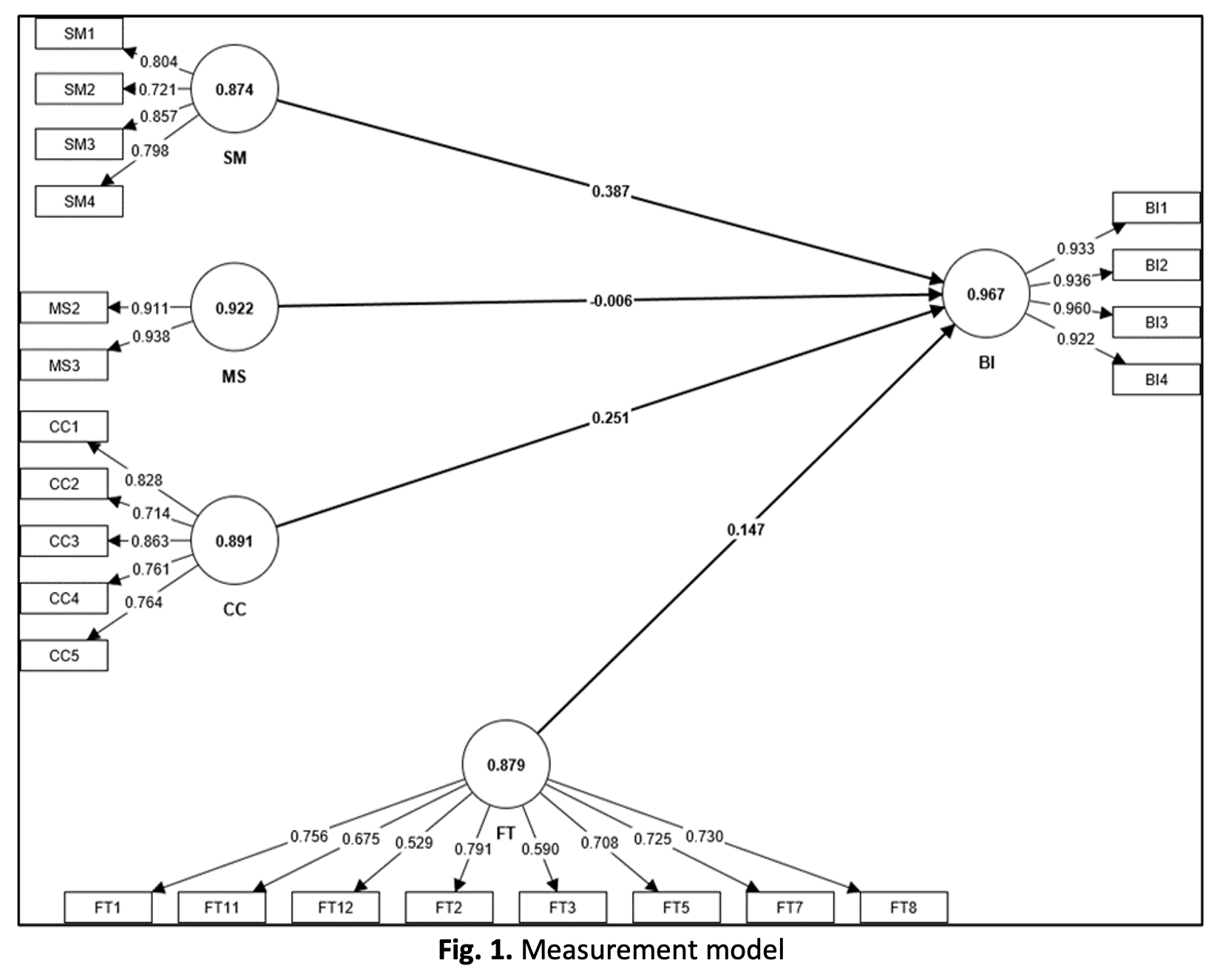Factors Affecting Future E-Learning Acceptance and Continuation among Students in Kelantan Community Colleges
DOI:
https://doi.org/10.37934/araset.33.3.279292Keywords:
Online Learning, Post-COVID-19, Community CollegeAbstract
The outbreak of the pandemic COVID-19 in year 2020 has forced education systems including community colleges to fully implement online learning regardless of constraints faced by students, lecturers and the colleges themself. This study was designed to explore the relationship between students’ motivation, students’ mindset, computer competency and familiarity with technology to the intention to further use e-learning post-COVID-19 among students of community college in Kelantan, Malaysia. Self-administered survey forms were disseminated to 118 students using the convenience sampling method. For data analysis, partial least square structural equation modelling (SmartPLS) 4.0 was used. The result from this study revealed that students of community college in Kelantan have a moderate intention to use e-learning post-COVID-19 with students’ motivation, computer competency and familiarity with technology have a positive relationship. Conversely, there is no evidence to support the relationship between students’ mindset and intention. Significantly, the results of this study can serve as a guide for management of community colleges when developing policies for future teaching strategies that make use of technology, particularly e-learning.
Downloads





























